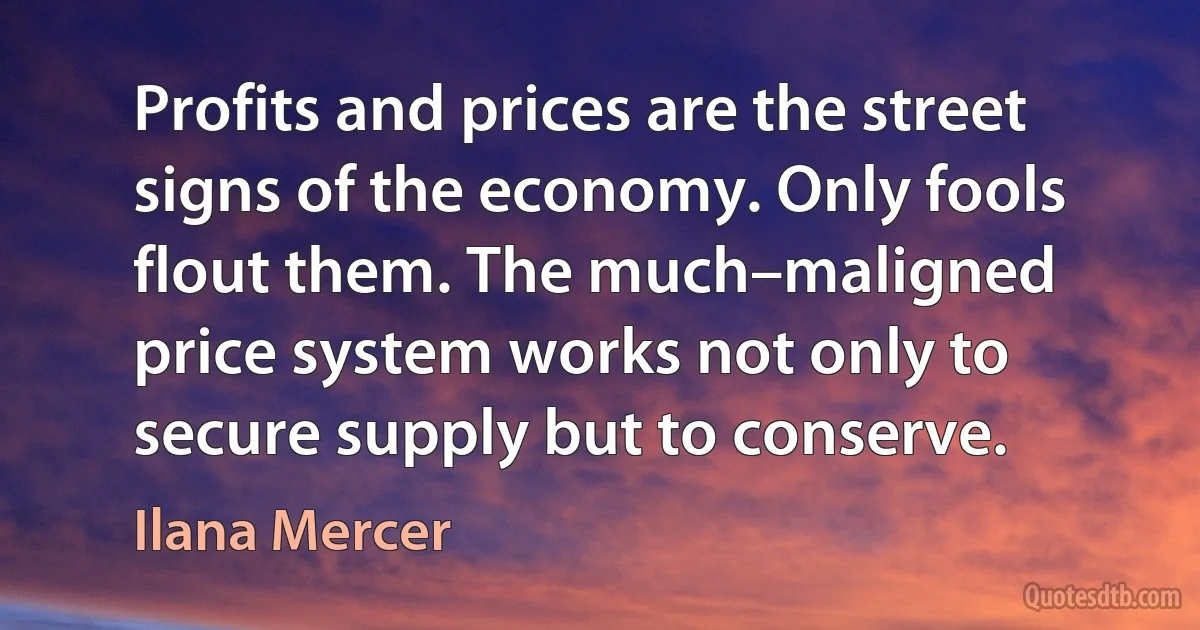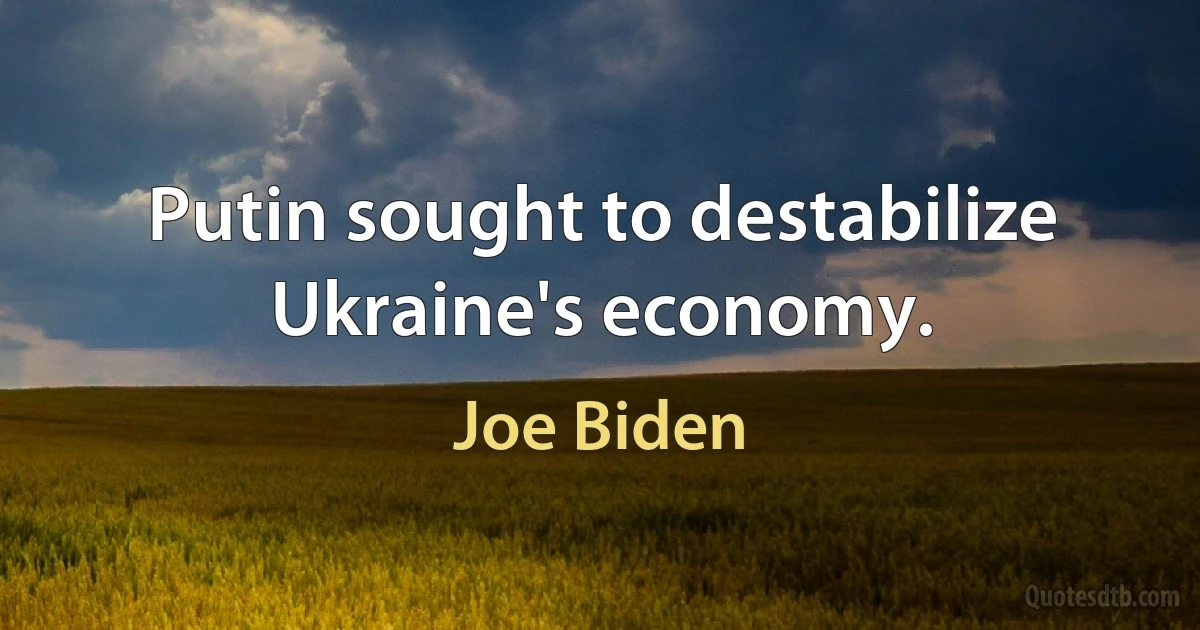Economy Quotes - page 87
Senate Democratic leaders have painted a very bleak picture of the U. S. economy. [Senate Minority Leader] Harry Reid was talking about soup lines. And [Senator] Hillary Clinton was talking about the economy being on the verge of collapse. Yet in the same breath they say that Social Security is rock solid and there's no crisis there. How are you going to work – you've said you are going to reach out to these people – how are you going to work with people who seem to have divorced themselves from reality?

Jeff Gannon
My aim is freedom and voluntary relations in all fields. The market economy is the result of this in the economic realm; in the cultural realm it means freedom of expression; in politics, democracy and the rule of law; in social life, the right to live according to one's own values and to choose one's company.

Johan Norberg
You know, I think of the global economy as an inverted triangle, resting on the shoulders of the American consumer. And if the American consumer cannot have enough disposable income in order to maintain a standard of living that creates more opportunities generation after generation, that's bad for everybody.

Hillary Clinton
I don't think top-down works in America. I think building the middle class, investing in the middle class, making college debt-free so more young people can get their education, helping people refinance their debt from college at a lower rate. Those are the kinds of things that will really boost the economy. Broad-based, inclusive growth is what we need in America, not more advantages for people at the very top.

Hillary Clinton
Japan gets the most of ordinary people by organizing them to adapt and succeed. America, by getting out of their way so that they can adjust individually, allows them to succeed. It is not that Japan has no individualists and America no organizations, but the thrusts of the societies are different. Japan has distorted its economy and depressed its living standard in order to keep its job structure and social values as steady as possible. At the government's direction, the entire economy has tried to flex almost as one, in response to the ever-changing world. The country often seems like a family that becomes more tightly bound together when it must withstand war, emigration, or some other upheaval. America's strength is the opposite: it opens its doors and brings the world's disorder in. It tolerates social change that would tear most other countries apart. The openness encourages Americans to adapt as individuals rather than as a group.

James Fallows
The Democrats seem to be basically nicer people, but they have demonstrated time and time again that they have the management skills of celery. They're the kind of people who'd stop to help you change a flat, but would somehow manage to set your car on fire. I would be reluctant to entrust them with a Cuisinart, let alone the economy. The Republicans, on the other hand, would know how to fix your tire, but they wouldn't bother to stop because they'd want to be on time for Ugly Pants Night at the country club.

Dave Barry
We shall also concern ourselves with the institutional order built up from transactions, but our focus will be less narrowly economic than the one adopted by Williamson. Like him, we shall argue that institutional structures aim partly at achieving transactional efficiencies and that where such efficiencies are effectively achieved they act somewhat like a magnetic field – a mathematician would call them ‘attractors' – drawing the uncommitted transaction into a given institutional orbit. Yet in contrast to Williamson's, our concept of transactions is underpinned by an explicit rather than an implicit theory of information production and exchange which yields a different way of classifying them as well as a distinctive approach to their governance. We find ourselves in consequence in the realm of political economy rather than of economics tout court.

Max Boisot


![[George W.] Bush explained that he wasn't willing to take the steps outlined in the Kyoto accords - steps that both the scientific world and the international political community had agreed, with a stunning degree of unanimity, were necessary for the future viability of the earth - because he wasn't willing to jeopardize the rate of growth of the American economy. In what sense is this a rational position? (Linda McQuaig)](https://cdn.quotesdtb.com/img/quotes_images_webp/77/linda-mcquaig-american-bush-867777.webp)
